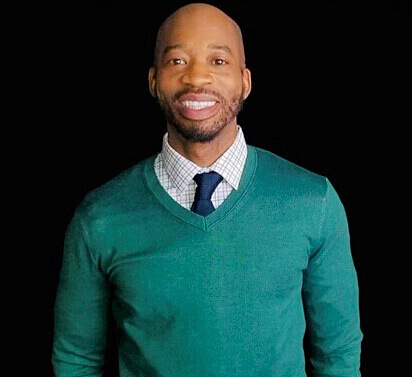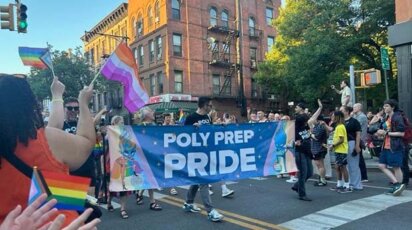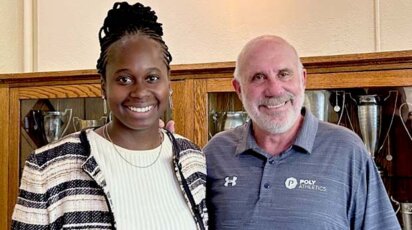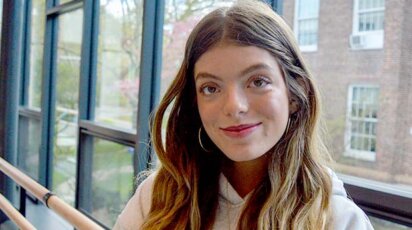News
Poly Welcomes Dr. Omari W. Keeles as Its New Director of Diversity, Equity, and Inclusion
Dr. Omari W. Keeles will take on the role of Poly’s new Director of Diversity, Equity, and Inclusion as of July 1, 2021.
Dr. Keeles comes to us from Northwestern University in Evanston, IL, where he served as Assistant Director for Diversity, Equity, and Inclusion for the Searle Center for Advancing Learning and Teaching since 2018.
Dr. Keeles grew up in Oakland, CA, where he attended an independent high school. He recalls that his parents were strong proponents of the best possible education for him and his sister. This included regular family outings for Black arts and educational outreach events. As a young Black man, Dr. Keeles says he has lived and understands the experience of being a minoritized student in an independent school.
Dr. Keeles said his “study of social identities” in his graduate and post-graduate research led him to Diversity, Equity, and Inclusion work. He wanted to take research a step further into real life implementation to examine and understand the lived experiences of racially minoritized students in educational contexts. He considered, “How can I apply theory to make a real difference?” One way was his work at the University of Michigan through “assisting with the execution and facilitation of two summer pipeline programs, Summer Research Opportunity Program–SROP and Michigan Humanities Emerging Research Scholars–MICHHERS.” For him, it was a very exciting time applying his research for the betterment of students.
Dr. Keeles’ parents were a great support throughout his college career. He earned a BS in psychology from Howard University and a Master of Public Health from The George Washington University. At Teachers College, Columbia University, he earned a Master of Arts, as well as a Master of Education in psychological counseling. He went on to earn a Master of Science in psychology and then a Doctor of Philosophy, Combined Program in Education and Psychology from the University of Michigan, Ann Arbor. He studied the French language at Université de Bourgogne in Dijon, France and attended a Summer School on Black Europe program in Amsterdam, The Netherlands. An avid traveler, he hopes to visit the “slave castles,” forts built by European traders in Ghana, when international travel is open to us again.
Dr. Keeles’ early work included providing academic counseling to scholarship students from racial/ethnic and socioeconomic backgrounds at the University of Miami, Coral Gables. At the University of Michigan between 2011-2018, Dr. Keeles served as: a research technician senior at the Center for the Study of Black Youth in Context; a program assistant with the Rackham Graduate School where he mentored 17 incoming graduate student participants from an educational, cultural, or geographic background underrepresented in graduate study in their discipline; and as a student services assistant with the Rackham Graduate School assisting in the development and execution of student programs, including mentoring 15 Summer Research Opportunity Program students.
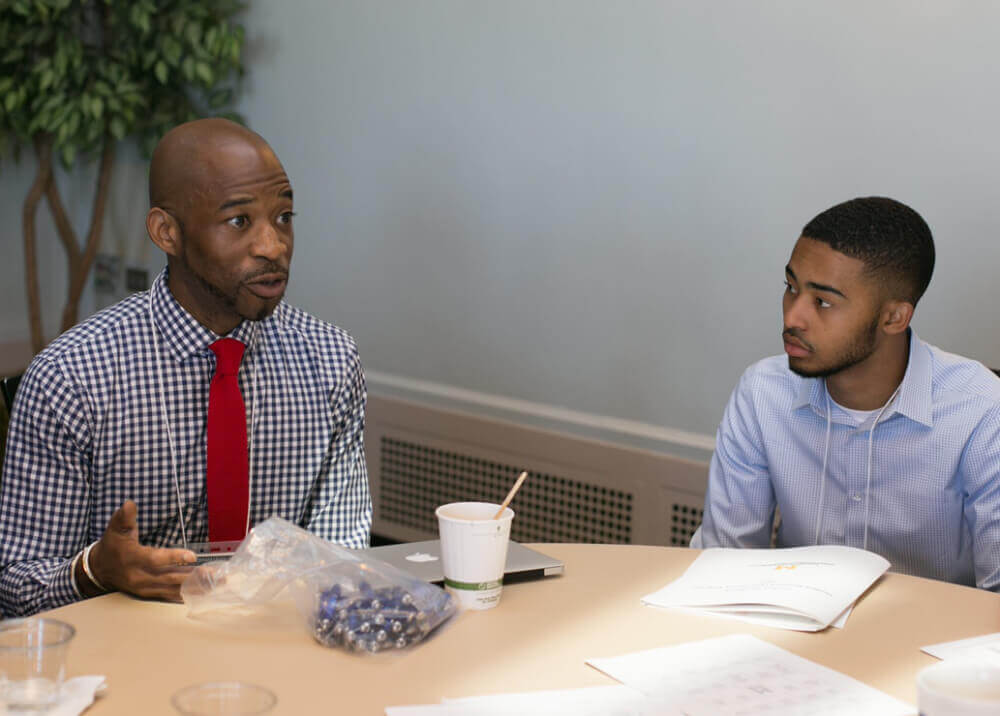
Although most of Dr. Keeles’ experience is on the university level, he is excited to work with our youngest students, noting that three-year-olds are “naturally open and honest, a prime time to reach them,” as well as providing an “open door policy” and safe/brave space for Upper School students with concerns or ideas about improving the community. He would like students to know that he plans to be transparent. “I am here to listen,” he said. “I want to be a sounding board.” He wants students to know “their voices and ideas matter.”
And while Dr. Keeles sees the value of having topics for discussion in forums, he believes that they should result in some action. He hopes to bring in speakers for roundtables and for career days, including representatives from HBCUs/MSIs/Tribal Colleges, as well as those who have taken non-traditional paths to their careers.
In addition to engaging with students and celebrating special diversity events, Dr. Keeles would like to see diversity celebrated “throughout the entire year—in the art on the walls, in how we prioritize literature, having a space for students to talk.” The arts are close to his heart. Dr. Keeles is classically trained to play cello, percussion, and piano and a major fan of singer-songwriter Erykah Badu, having once traveled cross country in one weekend to attend her concert.
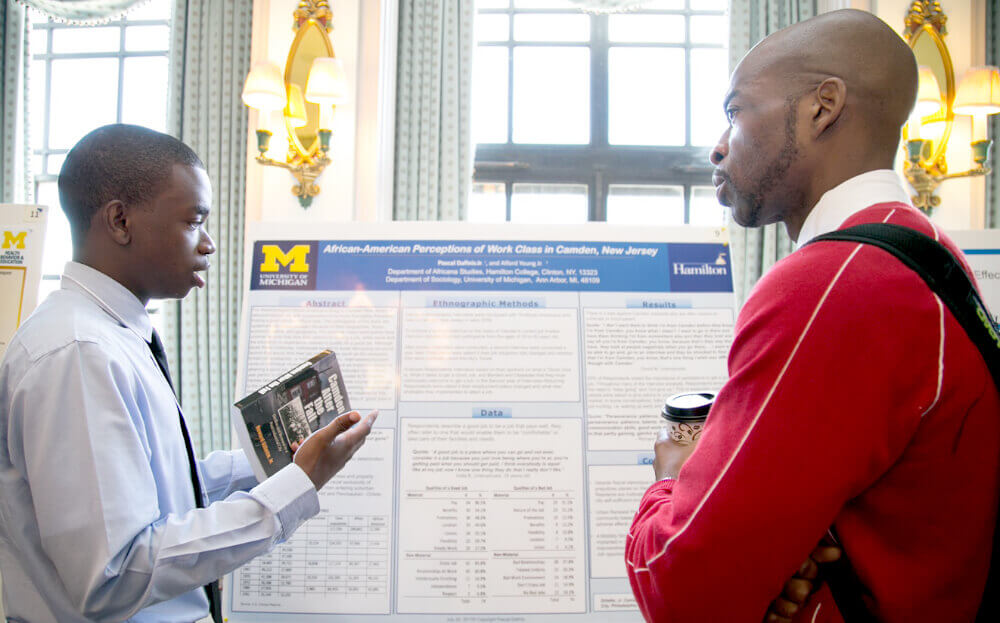
In engaging with Poly faculty, students, board members, and parents in the interview process, Dr. Keeles said he felt encouraged that he could have an “immediate impact” in the role of Director of Diversity, Equity, and Inclusion. He found, “an openness to ideas I presented” and a very serious regard for the work of anti-racism.
“The word ‘racism’ is everywhere. It’s used to explain all the things that cause African-Americans’ suffering and death: inadequate access to health care, food, housing and jobs, or a police bullet, baton or knee. But ‘racism’ fails to fully capture what black people in this country are facing.”
Dr. Keeles explained that part of that work is to disentangle anti-racism from diversity, equity, and inclusion. He cited a New York Times op-ed by kihana miraya ross, an assistant professor of African-American studies at Northwestern University, in which she called the word racism a “catch-all” that is not specific. Ross wrote: “The word ‘racism’ is everywhere. It’s used to explain all the things that cause African-Americans’ suffering and death: inadequate access to health care, food, housing and jobs, or a police bullet, baton or knee. But ‘racism’ fails to fully capture what black people in this country are facing.”
“Poly is really invested in this work,” Dr. Keeles said. But, he said that diversity work is “not just race driven.” A short-term goal of his work, he said, would be to include additional social identities such as race, gender, and ability to the DEI conversation. This will include considering, “What does social justice mean for minoritized groups?” and how the intersection of multiple identities accounts for within group variation of lived experiences (e.g., all Latinx students do not experience Poly the same). He added that to “diversity, equity, and inclusion” should be added the word ”belonging.” And a goal for this work at Poly will be that “people should feel like they belong.”
As he moves into his new role, Dr. Keeles said he hopes the community will be patient with him as he learns the landscape and needs of Poly. He can see that Poly is excited and passionate about the work of diversity, equity, and inclusion. Progress at first may be made in small gains, he said, and invites the community to join with him in this work.

